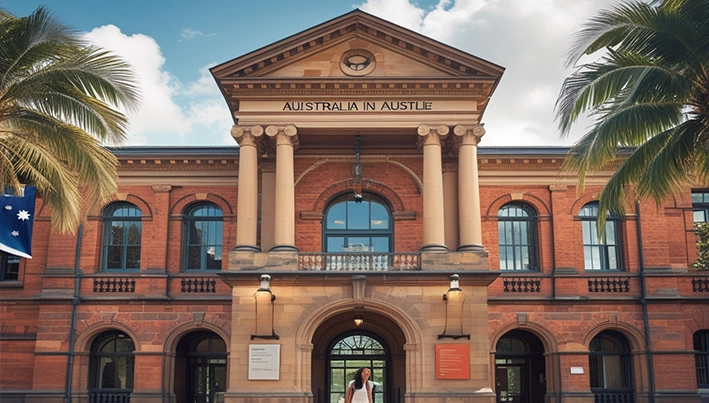Location: Province of Nova Scotia, Canada

Canada is widely recognized as one of the most desirable places to live and study in the world. With its high standard of living, inclusive society, globally respected education system, and breathtaking natural beauty, the country attracts people from across the globe who seek a better quality of life and brighter future. Whether you’re considering immigrating, pursuing higher education, or simply looking for a peaceful and prosperous place to settle, Canada offers a wide range of benefits for both residents and international students.
This essay explores the numerous advantages of living and pursuing education in Canada, ranging from safety, multiculturalism, and economic opportunity to academic excellence, post-graduation employment, and pathways to permanent residency.
Canada consistently ranks among the top countries in global quality of life indexes. Its cities such as Vancouver, Toronto, Calgary, and Ottawa are frequently listed among the best cities in the world for livability. These rankings are based on various factors including safety, healthcare, education, infrastructure, and environmental sustainability.
Healthcare in Canada is universal and publicly funded, which means residents have access to essential medical services without incurring high out-of-pocket expenses. The country is also renowned for its low crime rate, political stability, and clean environment. These features make it an ideal place not only for individual well-being but also for raising families.
One of the most defining aspects of Canadian society is its multiculturalism. Canada officially adopted multiculturalism as a national policy in ۱۹۷۱, and since then, it has embraced diversity in all forms. People of different races, religions, and cultural backgrounds live harmoniously in Canadian cities.
This inclusive environment helps newcomers feel welcomed and supported, easing the transition for immigrants and international students. Anti-discrimination laws and programs promoting equity are actively enforced. The Canadian Charter of Rights and Freedoms ensures fundamental rights such as equality, freedom of religion, and freedom of expression for all.
Canada is globally renowned for its high-quality education system. From kindergarten to post-doctoral studies, Canadian institutions are known for excellence in teaching and research. Universities such as the University of Toronto, University of British Columbia, McGill University, and University of Waterloo are internationally ranked and respected.
The Canadian education system emphasizes practical learning, critical thinking, and innovation. Students are encouraged to participate in research projects, internships, and co-op programs, equipping them with real-world experience that enhances employability.
Tuition fees for international students in Canada are relatively affordable compared to countries like the United States and the United Kingdom, while the quality of education remains competitive.
While Canada is not the cheapest country to live in, its cost of living is considered reasonable compared to other high-income countries such as the United States, the UK, or Australia. For example, healthcare expenses are lower due to public insurance, and education is less expensive than in the U.S.
Many Canadian provinces and cities offer student discounts on public transportation, museums, entertainment venues, and even groceries. International students are allowed to work part-time during studies and full-time during breaks, which helps them offset living expenses.
Safety is one of the most cited reasons people choose to live in Canada. The country has a very low crime rate and is often regarded as one of the safest places in the world. Police are trustworthy, emergency services are efficient, and gun violence is rare compared to other developed countries.
For parents, knowing that their children are growing up in a secure environment is a key benefit. For students, it means they can focus on their studies without fear for their personal safety. Canada’s political neutrality and commitment to peaceful diplomacy also contribute to its stability and attractiveness as a home.
Canada is officially a bilingual country, with English and French as its official languages. Studying or living in Canada provides an opportunity to improve or become fluent in both languages, which is a great asset in the global job market.
Canadian schools often offer bilingual programs, and many institutions in Quebec provide instruction in French. Learning in such an environment enhances cultural intelligence and communication skills, both of which are essential in an increasingly interconnected world.
One major advantage of studying in Canada is the ability to work while studying. International students can work up to ۲۰ hours per week during academic terms and full-time during scheduled breaks without needing a separate work permit.
After graduation, students can apply for a Post-Graduation Work Permit (PGWP), which allows them to gain Canadian work experience for up to three years, depending on the duration of their studies. This work experience is valuable not only for personal development and financial stability but also for those seeking permanent residency in Canada.
Canada offers clear and accessible pathways for students and skilled workers to become permanent residents and, eventually, citizens. Programs such as Express Entry, Provincial Nominee Programs (PNPs), and the Canadian Experience Class prioritize applicants with Canadian education and work experience.
This makes studying in Canada an excellent option for those looking for long-term settlement. Once permanent residency is obtained, individuals enjoy almost all the rights of citizens, including healthcare, education, and legal protections. After a few years as a permanent resident, one can apply for Canadian citizenship.
Canada’s vast and varied landscape offers breathtaking beauty and abundant recreational opportunities. From the majestic Rocky Mountains and Banff National Park to the lakes of Ontario and the coastlines of British Columbia and Nova Scotia, the country is a paradise for nature lovers.
Canadians enjoy a healthy, active lifestyle, with year-round activities such as hiking, biking, skiing, snowboarding, kayaking, and camping. Parks, green spaces, and outdoor facilities are well maintained and accessible, promoting physical and mental well-being.
Canada is known for its investment in innovation and scientific research. The government supports a range of research initiatives in fields such as engineering, biotechnology, artificial intelligence, and environmental science. Canadian universities are home to cutting-edge laboratories, research centers, and collaborations with industry.
Students interested in research and development benefit from exposure to advanced technologies and mentoring by leading scientists. Research-based education equips students with critical analytical skills and positions them competitively in the global job market.
Canada offers a rich cultural life with festivals, museums, galleries, and international cuisines. Major cities like Toronto, Montreal, and Vancouver are cultural melting pots where people celebrate diversity through food, art, music, and film. Annual events like the Toronto International Film Festival (TIFF) attract global talent and audiences.
Additionally, Canada’s geographic position allows easy travel to both Europe and the United States. International students and residents benefit from this connectivity for academic exchanges, conferences, and leisure travel.
Canadian institutions and government bodies provide comprehensive support for newcomers. International students receive assistance with visas, housing, healthcare, and cultural orientation. Universities often have dedicated offices to help international students adapt to their new environment and succeed academically.
Community organizations across the country offer free or low-cost services such as language classes, career counseling, and legal aid. This supportive environment helps new residents feel welcomed and integrated into society.
Canada takes environmental issues seriously and promotes sustainable living. The country invests in renewable energy, protects its natural resources, and encourages citizens to adopt green practices. Recycling, energy-efficient transportation, and eco-friendly policies are common throughout Canadian society.
Living in Canada encourages people to be environmentally aware and responsible. For students and professionals in fields like environmental science, climate change, and sustainable development, Canada offers meaningful opportunities to learn and contribute.
A Canadian degree is respected worldwide. Graduates from Canadian universities often find employment in multinational companies, government organizations, and research institutions around the globe. The combination of academic rigor and practical experience makes Canadian graduates highly sought after.
In Canada itself, the job market values education and credentials, and many industries are welcoming to foreign talent. Whether one chooses to return to their home country or build a career in Canada, education obtained in Canada opens doors to diverse and rewarding opportunities.
Canada stands out as a beacon of hope and opportunity in a complex and changing world. Its commitment to equality, education, innovation, and well-being makes it one of the best countries to live and study. For individuals seeking not just a degree, but a life of dignity, growth, and fulfillment, Canada offers unmatched benefits.
From its safe and multicultural cities to its globally respected education system, from its welcoming immigration policies to its stunning landscapes, Canada is more than just a destination—it’s a future. Choosing to live and study in Canada is an investment not only in one’s academic journey but in a lifetime of possibilities.











Leave a Reply